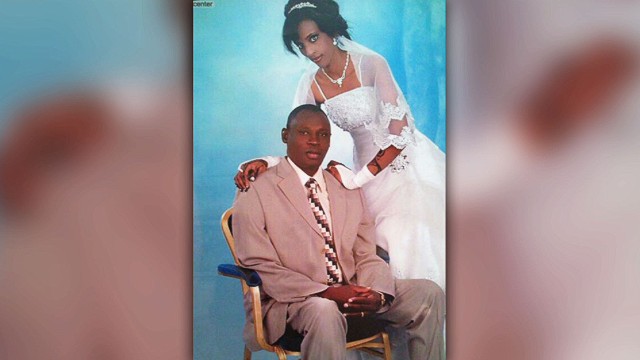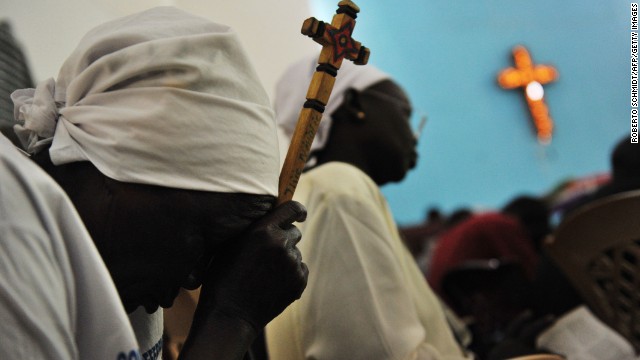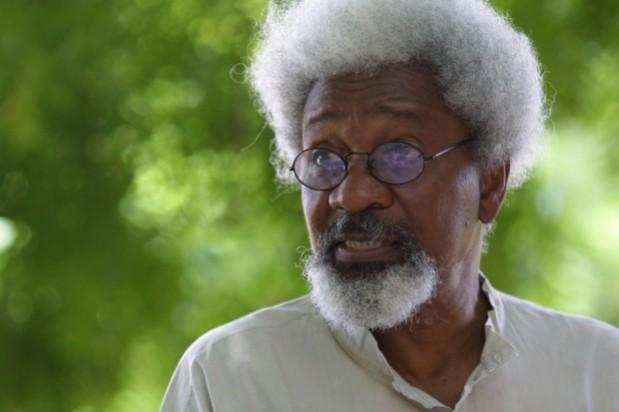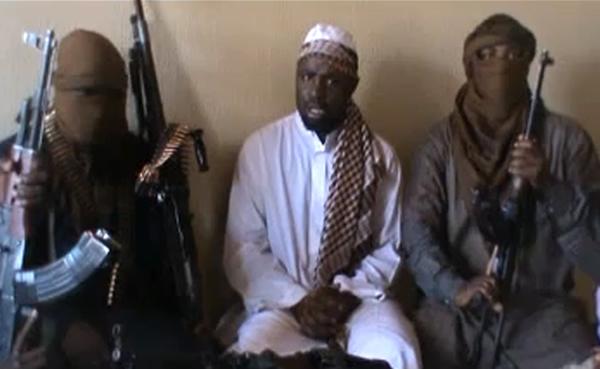
Located in the Democratic Republic of Congo and
established in 1938, the Garamba National Park was in 1980 designated
by UNESCO as a World Heritage Site. But what most people across the
globe easily remember about the park is the 2008 US-supported
“Operation Lightning Thunder”, an unsuccessful attempt by the Uganda
Peoples Defence Force (UPDF) to capture or kill Mr. Joseph Kony, the
Ugandan rebel leader who could easily be described as the number one
terrorist in Africa. Dubbed by the media as the “Garamba Offensive”,
the operation was led by the Uganda Army (with logistics provided by
the United States military) who pursued Kony whose men had massacre
several people, including 14 soldiers. At the end, they failed to get
him even though the operation succeeded in freeing hundreds of children
from his captivity.
Against the background that in October 1996 Kony’s LRA also abducted
139 female students from St. Mary’s College Boarding School, Apac
district in Uganda, I am beginning to wonder if Boko Haram is not
reading from the Lord’s Resistance Army (LRA) manual. Therefore, as the
United States, France, China, United Kingdom, Canada and Israel join
our country in the efforts to rescue the more than 200 female students
abducted from Chibok, Borno State by Boko Haram insurgents, there are
lessons to learn from the activities of the Kony-led LRA in Uganda.
In the last few days, I have been drawing interesting parallels
between the LRA and Boko Haram and other terror affiliates whose men
kill in the name of religion as I read again “The Wizard of the Nile:
The Hunt for Africa’s Most Wanted”, autographed for me by the author,
Matthew Green, about four years ago.Green, a British journalist who had
spent five years as the Central Africa correspondent for Reuters, was
in Nigeria between 2007 and 2009, reporting for the
Financial Times of London before leaving to become their South Asia Security Correspondent, where he is now covering Afghanistan and Pakistan.
In the introduction to the very revealing book, Green had written:
“From our crow’s nest in Nairobi, the conflict looked like a classic
tale of pointless savagery. The rebels had massacred villagers,
mutilated hundreds of people and abducted thousands of children—all for
the sake of one man’s ambition to rule according to his warped reading
of the Bible.”
For those who may not be familiar with the LRA, it is not too
different from Boko Haram except that the former claims to draw
inspiration from the Bible while the latter claims to draw its own from
the Quran. In the narrative of a dramatic encounter, Green reveals the
mindset of the LRA leader: “I would like to declare today clearly why
we are fighting,” (Joseph) Kony went on, reverting back to Acholi (his
native language). “Of course our political agenda has already been
explained. We are fighting for God’s Ten Commandments; we are fighting
for God’s power. If you look at the Ten Commandments, are they bad? We
are fighting for God’s rule because God’s rule is eternal…”
Given what they cite as
raison d’etre for their actions, one
can easily conclude that both Kony, (who was for a long while the lord
of the Garamba forest) and Abubakar Shekau (who has become the lord of
the manor at Sambisa Forest), seem to be operating from the same
template. One, both of them are fighting what they consider holy wars in
the bid to impose a theocracy in their respective countries in the
name of their Gods. Two, they both consider abduction of young girls
for deployment as sex slaves as no more than fair games. Three, there
is a sectional undertones to their narratives or so it is perceived.
While Kony hails from the largely agrarian northern region of Uganda
whose people are generally opposed to incumbent President Yoweri
Museveni, Shekau also comes from the North of Nigeria where many
political leaders feel short-changed that a southerner in President
Goodluck Jonathan is currently occupying Aso Rock against the principle
of zoning enshrined by the ruling Peoples Democratic party (PDP).
Four, the international community had/have to intervene in both
countries following humanitarian calamities involving women and
children. Five, the people of the region where both hail from suffer the
collateral damage of their murderous activities. (A conversation
between Green and his guide, a young man named Moses who comes from the
Northern region like Kony buttresses this point: “People were forcibly
taken to camps—they did not want to go”, Moses said. “But the soldiers
burned their houses, all their crops were slashed down, they beat
people. We Northerners, we are not given any respect, we are just like
slaves...the civilians and the government don’t trust each other now,
the rebels come and tell the civilians: ‘you are supporting the
government’. And the government tells them: ‘you are supporting the
rebels—they are your children’. So we end up being caught in the
middle.”)
Six, both the LRA and Boko Haram had/have sympathisers within the
establishments who provide them with intelligence information either on
government’s intentions, plans or troop deployments and strength.
(President Jonathan has, for instance, said in the past that Boko Haram
has sympathisers within the executive, Judiciary, legislature and the
security agencies. In the case of Uganda, Lt. Col. Arop, a LRA senior
commander captured during the Garamba offensive, said Kony addressed the
rebels two days before the operation, urging them to prepare for a
UPDF imminent attack). Eight, both the LRA and Boko Haram avoided/avoid
sustained direct confrontation with the respective militaries. They
are always divided in small formations which are extremely mobile and
hard to detect until they strike their soft targets, mostly defenceless
villagers. This makes it very difficult for the national armies to
defeat them easily. Nine, both extremists are transnational in
operations and have external support. Ten, foreign mercenaries are
members of the terror machines of both the Boko Haram and the LRA.













